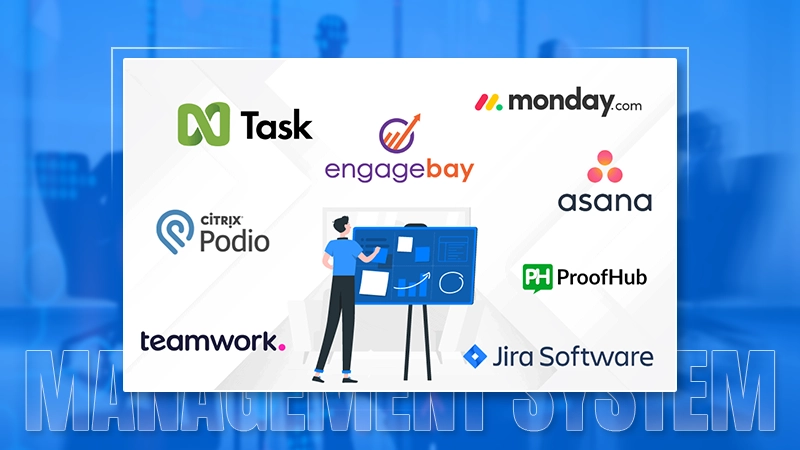
Nowadays, businesses can offer their goods or services to customers anywhere in the world – thanks to e-commerce websites, which have the ability to reach a global audience. This has the capacity to greatly increase a company’s customer base and revenue.
Online stores can go worldwide, letting companies sell their goods or services to people everywhere & in today’s generation where people love to order their favorite items from the comfort of their homes, this makes for a great deal.
In addition, online shopping websites are usually cheaper than physical stores that you can visit. They don’t need to pay for stuff like the rent and electricity bill and can get by with fewer employees.
However, have you ever thought about what it takes to build an online shopping site, how to accept payments on the website, or how can people request purchases, returns, & refunds through the website?
So, let’s break it down for you.
There are two main ways to create an e-commerce site: either by using an e-commerce website maker or by hiring a web development firm. The choice made is going to have a big impact on the online store’s total cost.
The most affordable method to create an online store is typically through e-commerce website creators. Although using unlimited, open-source platforms is appealing, your overall costs may go up if you have to pay for hosting, designs, plugins, and even software assistance if you have special requirements.
E-commerce website builders are best for:
- Those with limited technological expertise
- Those who must create a website quickly
Depending on whether you have retail stores or not, the cost of an e-commerce website builder can vary from $39 to $399 per month.
Nevertheless, new stores’ typical monthly website costs, excluding sweat equity, will be around $39.
Hosting
The price varies depending on a number of variables, including how much business your shop receives and any additional services you might require, like scheduled backup systems.
Irrespective, every website requires hosting in order to store its files. You’ll also need a domain name, which serves as your online store’s address.
There are two types of hosting commonly used by e-commerce brands:
SaaS e-commerce Platform Hosting
E-commerce platforms such as Shopify do not require web hosting. Your monthly membership fee includes all that you require.
Secure hosting comes with every Shopify plan, which includes:
- You get unlimited bandwidth, so you don’t have to be concerned with paying more if your traffic increases.
- Level 1 PCI compliance ensures the security of customer data.
- Fast servers and instant updates ensure that you never lose out on the new features.
- An SSL certificate is used to protect the consumer and increase people’s trust.
- Email forwarding is unlimited.
Only a domain name needs to be purchased and registered independently. The domain name generator on Shopify will help you quickly discover suitable domains for your e-commerce venture.
Based on the leading domain you select, prices can start at around $11 per year and go as higher as $81.
Self-hosted E-commerce Website
WooCommerce and Magento are two examples of free e-commerce website makers. However, in order to handle your items and buy a domain, you need a hosting provider profile.
When self-hosting your website, you’ll pay expenses like:
- A monthly fee of $7.99 is charged for an e-commerce hosting account.
- A domain name may be purchased for about $14.99 per year now.
- An SSL license costs at least $69 every year.
A few more web servers, like Bluehost, charge $2.75 per month for solutions that include an SSL certificate and a free domain name.
The only problem is that you’ll have to update your hosting package as your e-commerce shop expands to handle the increased traffic.
Hosting Cost Estimates:
- SaaS-hosted: As little as $39 per month for storage that is limitless.
- Self-hosted: With incremental upgrades, monthly costs range between $2.75 and $2,000.
Payment Processing
A business called a payment processor oversees deals so customers can purchase your goods. To accept payments from credit cards, debit cards, and other smart pay alternatives, every online shop needs a payment gateway.
Associated costs with processing payments vary depending on the e-commerce platform package you have.
For instance, the Shopify Basic account charges 2.9% + $.30 per sale as a processing fee for online payments made with credit cards. The cost of the Advanced Shopify package is 2.4%. The cost is less if you accept money in person because there is less chance of scamming.
Shopify Payments is a feature included with every Shopify account that enables you to launch a store right away.
You can take credit cards and other well-known payment methods like Shop Pay, Apple Pay, and G Pay as soon as Shopify Payments is activated.
Customers can easily check out with previous payments as well as delivery details by offering Shop Pay as a checkout alternative. More than 20% of consumers have Shop Pay accounts already.
Brand and Web Design Costs
Your website’s first impression can significantly influence a visitor’s decision to remain and browse more or to leave and visit another site.
Additionally, confidence is a crucial element in consumers’ judgment calls.
Customers are more inclined to buy from a label they trust, and your website’s branding can be extremely important in fostering that confidence.
A solid and consistent branding strategy can help you build your trust and give your website a more polished, trustworthy appearance, both of which can help you draw in and keep consumers.
The built-in tools provided by Shopify Themes allow you to change the options for the design, colors, and style.
These templates come ready with all you require to start your store:
- Homepage
- Product pages
- Shopping cart
- Checkout page
- FAQ
- About pages
To assist you in choosing the ideal style and appearance for your business, Shopify Themes provides over 100 free and premium themes.
Themes based on various categories are offered, including those based on video and 3D goods, large images, huge inventories, minimalist design, enjoyable and lively, and much more.
According to the theme you select, prices can range from $0 to over $180.
Custom Development
You may occasionally need assistance to get your store to appear the way you want, from complete design revamps to the addition of a single click.
The creation, deployment, and maintenance of your store to meet particular business requirements are referred to as custom e-commerce website development. Business owners can collaborate with web designers to modify Shopify themes or generate new storefronts.
Now you might wonder, how much does website development cost?
The services you require will affect the price. For a personalization project, some companies, like OuterBox, ask upwards of $100,000.
According to the scope of the project, other reputable Shopify companies can run between $5,000 and $20,000 in price.
Add-on and Extension
One software program cannot possibly meet the demands of every e-commerce company. You will probably want to upgrade your website’s functionality.
The best online shopping software allows you to add applications to your store to improve its e-commerce functionality and better the consumer experience.
Some of them are free, while others cost money, which raises the price of setting up your web store.
There is a tool for everything these days, whether you want to increase your search engine optimization, advertising on Facebook, add customer reviews to your shop, or add digital marketing.
Each paid program has a different cost. The majority are accessible through regular subscriptions. Additionally, you can include custom-made, individual apps for your shop. Although these apps are saved and operated on a different server, you can create Shopify API keys to grant them access rights.
Based on the expertise and prices of your developer, custom apps can cost as much as $5,000.
Business Costs
You may need to make additional investments in your website, such as buying a domain name, website management, online marketing, and customization options, depending on your objectives and the size of your company.
Budgeting will also be needed for ongoing costs like inventory management, customer support, and online advertising efforts.
So, it’s critical to strike a balance between your objectives and your finances and to give top priority to the costs that will benefit your company the most in the big scheme of things.
Conclusion
An online company must be profitable over time. It’s critical to pick an e-commerce platform that won’t consume all of your budgets while providing you with the resources required for success.
Think about where your company is right now and where you want it to be in the future & then look for an e-commerce tool that can assist you in doing so.







